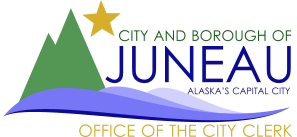Past CBJ Boards, Committees, Commissions & Task Forces
Appointed Boards, Commissions, Committees and Task Forces provide advice and recommendations to the Assembly in its area of responsibility and allow for greater citizen involvement in the governmental process. Below is a list of former CBJ Boards, Committees, Commissions, Task Forces etc… in alphabetical order according to which type of body they are. The following is a brief listing of the areas of responsibility for those boards with links to their webpages and additional information.
ADVISORY BOARDS:
Resolutions, laws, or mission statements, which outlined the specific purpose of a previous board, may be available from the clerk’s office by calling 586-5278 or sending an e-mail request to [email protected].
Juneau Energy Advisory Committee (JEAC) Advised the Assembly on all energy related matters affecting the well being of the community and the efficient operation of local government, including Assembly approved community wide educational activities regarding energy use and conservation. This was a nine-member board of public members. The mission of the JEAC was folded into that of the Juneau Commission on Sustainability and the Juneau Energy Advisory Committee was disestablished through Resolution 2401.
AD HOC COMMITTEES/TASK FORCES AND BOARDS APPOINTED BY OTHERS:
There have been several ad hoc committees or task forces appointed by the current and former mayors and the most recent of those groups no longer in effect are listed below with links to their webpages, if they had any, many of which contain copies of their minutes, agendas, and reports to the Mayor, Assembly, and Staff.
Annexation Study Commission was an ad hoc commission appointed by Mayor Botelho. The purpose of the commission was to study and make recommendations to the Assembly concerning (a) whether the CBJ should file a petition to annex territory within the “model borough boundaries” of the CBJ, and (b) if so, what territory should be proposed for annexation and by what procedure.
Capitol Planning Committee was an ad hoc committee appointed by Mayor Botelho to develop a vision for what the capitol building should be, to identify the space for the facility and develop a concept of what the building should look like, to develop funding ideas and something that the Alaskan people can see for their vision, to come up with a proposal to present to the governor.
Economic & Employment Diversification Strategy Committee was appointed by Mayor Botelho and chaired by Assembly member Randy Wanamaker. The committee was tasked with developing a 50-year Economic and Employment Diversification Strategy for the City & Borough of Juneau no later than March 31, 2006.
Fluoride Study Commission was an ad hoc commission appointed by Mayor Botelho. They were tasked with researching and evaluating the scientific literature regarding the use of fluoride in municipal drinking water; researching and evaluating the process used by other municipalities in making decisions regarding fluoridation of municipal drinking water; performing a cost/benefit and risk analysis regarding the use of fluoride in municipal drinking water; and to make recommendations to the Mayor, City Manager, and Assembly, regarding the use of fluoride in CBJ drinking water.
Scientific Panel on Global Warming was appointed by Mayor Botelho, was tasked to review relevant factual information regarding present impacts and potential future projections of Global Warming’s effects on Juneau and to present those findings to the public and Assembly and make recommendations to the Assembly on whether to participate in any of the regional or national initiatives as well as recommendations on any policy options respecting Global Warming.
When the panel completed its work, the Assembly combined the efforts of the Scientific Panel with that of the Juneau Energy Advisory Committee by creating the Juneau Commission on Sustainability through Resolution 2401.
During 2005, the Assembly Finance Committee formed a Tax Policy Subcommittee. That subcommittee recommended several changes to the exemptions, one of which called for modification of the sales tax exemption for senior citizens so that it would be eliminated after January 1, 2016. Many of the subcommittee’s recommendations were acted upon in late November 2005. However, because of its complexity and controversy, the Assembly chose to defer immediate action on the senior exemption, agreeing to study it further, but bar any change that would take effect in 2006. This task force was the vehicle for further study. The task force was charged with deciding on agreed facts regarding present impacts and future projections for the existing senior sales tax exemption, developing a set of available options that involve the eventual elimination of the current exemption, researching the potential financial and social impacts of these options, to hold public hearings regarding the options, and to report its findings to the Assembly.
